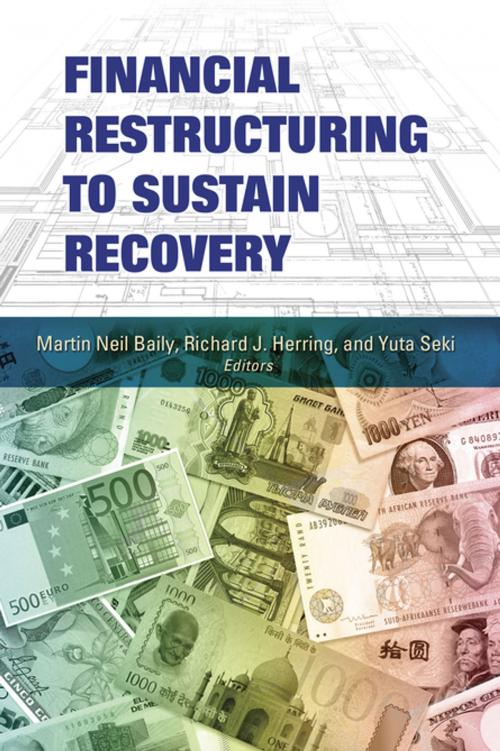Financial Restructuring to Sustain Recovery
Business & Finance, Economics, Comparative Economics, Nonfiction, Social & Cultural Studies, Political Science, Politics, Economic Policy| Author: | ISBN: | 9780815725251 | |
| Publisher: | Brookings Institution Press | Publication: | December 11, 2013 |
| Imprint: | Brookings Institution Press/Nomura Inst. | Language: | English |
| Author: | |
| ISBN: | 9780815725251 |
| Publisher: | Brookings Institution Press |
| Publication: | December 11, 2013 |
| Imprint: | Brookings Institution Press/Nomura Inst. |
| Language: | English |
The financial crisis of 200708 and the Great Recession caused more widespread economic trauma than any event since the Great Depression. With a slow and uneven recovery, encouraging stability and growth is critical.
Financial Restructuring to Sustain Recovery maintains that while each part of the financial services industry can play a useful role in revving up the U.S. economic engine to full capacity, the necessary reforms are sometimes subtle and often difficult to implement. Editors Martin Neil Baily, Richard Herring, and Yuta Seki and their coauthors break recovery down by three areas:
Restructuring the housing finance market
Reforming the bankruptcy process
Reenergizing the market for initial public offerings
Included are lessons drawn from Japan's experience in overcoming its long-lasting financial crisis after the collapse of its real estate market in the 1990s.
Contributors: Franklin Allen (Wharton School, University of Pennsylvania), James R. Barth (Auburn University College of Business; Milken Institute), Thomas Jackson (Simon School of Business, University of Rochester), Jay R. Ritter (Warrington College of Business, University of Florida), David Skeel (University of Pennsylvania Law School), and Glenn Yago (Milken Institute).
The financial crisis of 200708 and the Great Recession caused more widespread economic trauma than any event since the Great Depression. With a slow and uneven recovery, encouraging stability and growth is critical.
Financial Restructuring to Sustain Recovery maintains that while each part of the financial services industry can play a useful role in revving up the U.S. economic engine to full capacity, the necessary reforms are sometimes subtle and often difficult to implement. Editors Martin Neil Baily, Richard Herring, and Yuta Seki and their coauthors break recovery down by three areas:
Restructuring the housing finance market
Reforming the bankruptcy process
Reenergizing the market for initial public offerings
Included are lessons drawn from Japan's experience in overcoming its long-lasting financial crisis after the collapse of its real estate market in the 1990s.
Contributors: Franklin Allen (Wharton School, University of Pennsylvania), James R. Barth (Auburn University College of Business; Milken Institute), Thomas Jackson (Simon School of Business, University of Rochester), Jay R. Ritter (Warrington College of Business, University of Florida), David Skeel (University of Pennsylvania Law School), and Glenn Yago (Milken Institute).















